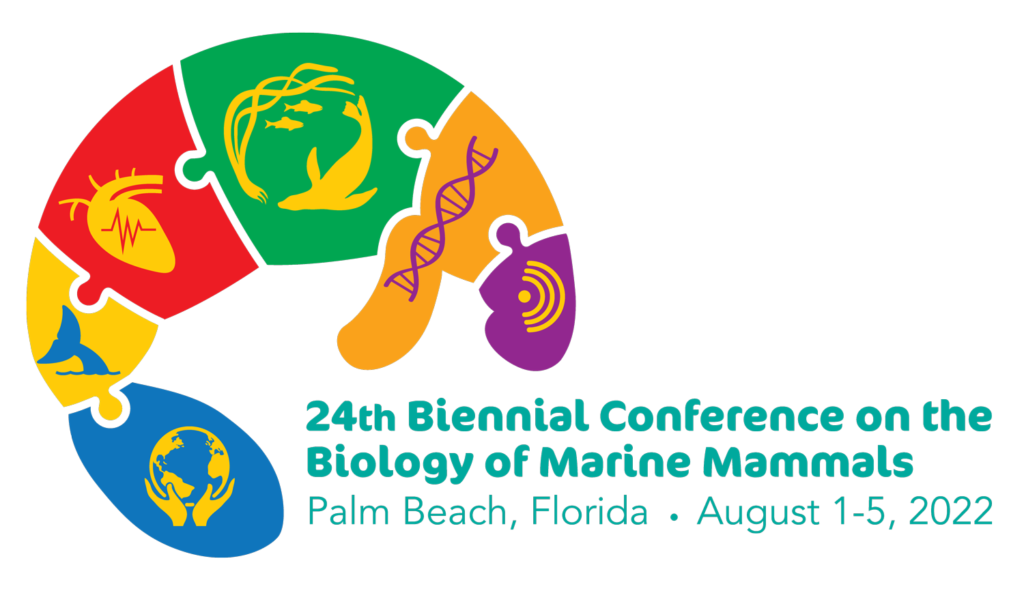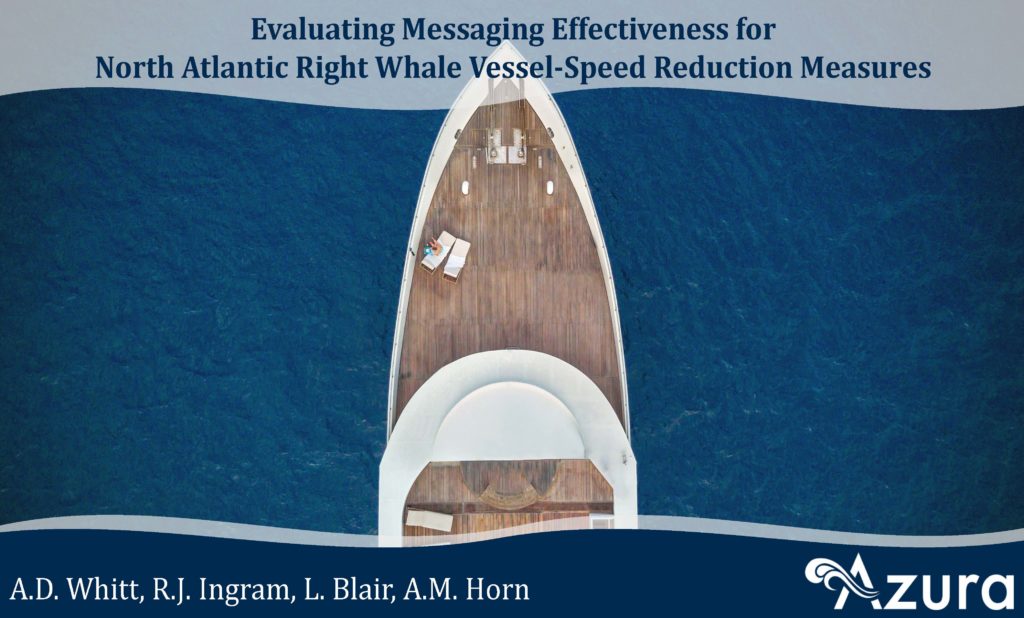
During August, 1885 attendees joined together for the Society for Marine Mammalogy’s first fully hybrid, live-virtual conference. Held at the Palm Beach County Convention Center in West Palm Beach, Florida, the 24th Biennial Conference on the Biology of Marine Mammals focused on change and diversity. We embrace both change and diversity in our field from the multidisciplinary approaches to marine mammal science to the multiplicity of scientists and managers who contribute to this field.
Azura’s scientists presented “Evaluating Messaging Effectiveness for North Atlantic Right Whale Vessel-Speed Reduction Measures”. During this oral presentation, we introduced preliminary results from a human dimension study funded by NOAA’s Greater Atlantic Regional Fisheries Office. During this social science study of large pleasure vessel and yacht operators, we investigated operator awareness, comprehension, compliance, and cooperation with the vessel-speed measures which protect North Atlantic right whales.

Abstract
The North Atlantic right whale is one of the most endangered large whales in the world, and vessel strikes remain one of the most significant threats to this species. Although mandatory and voluntary vessel-speed reduction measures along the U.S. east coast have been in place for years, a recent study by NOAA Fisheries found varying levels of compliance and cooperation across areas and vessel type. Large pleasure vessel and yacht (≥65 feet in length) operators were found to have low levels of compliance with the mandatory speed rule, particularly off Savannah, Georgia, and New York, New York. Successful compliance and cooperation with right whale mandatory and voluntary vessel-speed measures require vessel operators’ awareness and comprehension. We used social science to investigate these operators’ awareness, comprehension, compliance, and cooperation with the vessel-speed measures. Our research design borrowed from the fields of marketing and environmental psychology to illuminate why people choose to comply or not with speed rules. The study objectives were to: (1) better understand the factors that motivate compliance within this vessel operator community, (2) assess the effectiveness of various education and outreach methods/tools used to reach this community, and (3) determine if there are more applicable and effective communication and/or outreach methods/tools to enhance compliance with mandatory speed restrictions and cooperation with voluntary speed recommendations. The results of this study will assist NOAA Fisheries in developing future education and outreach efforts for vessel-speed reduction measures.
Whitt, A.D., R.J. Ingram, L. Blair, and A.M. Horn. Evaluating messaging effectiveness for North Atlantic right whale vessel-speed reduction measures. 2022 Society for Marine Mammalogy 24th Biennial Conference on the Biology of Marine Mammals, Palm Beach, Florida, 1-5 August. (Oral presentation).

